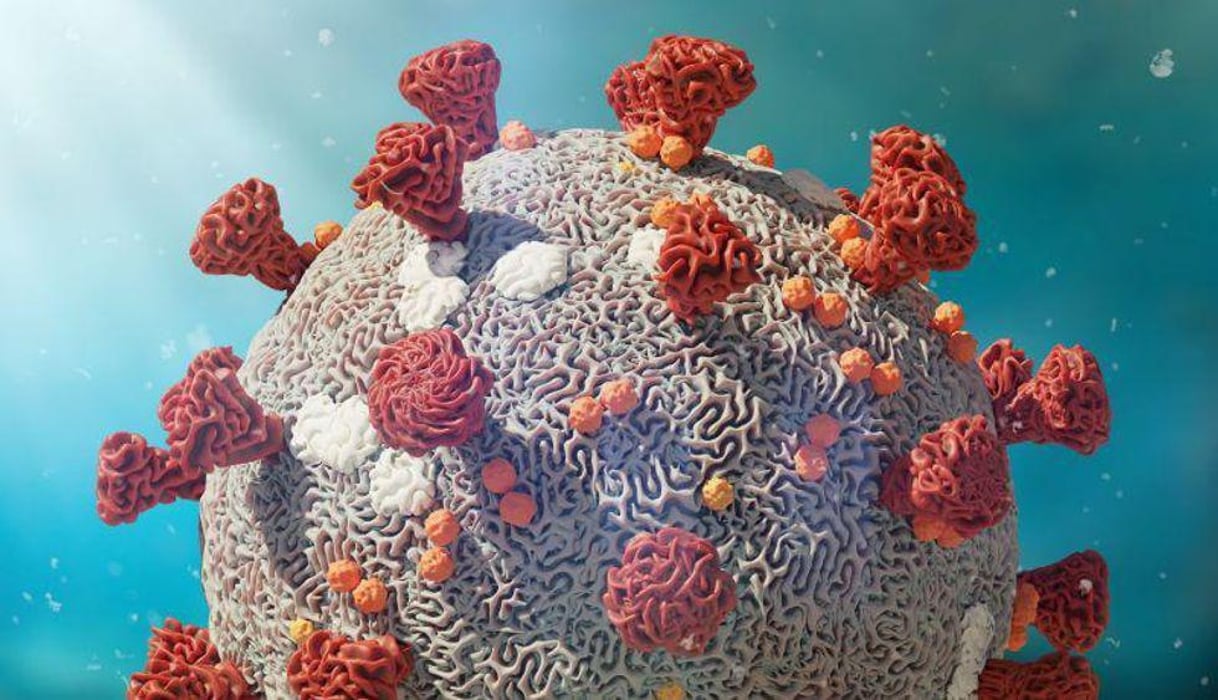Thanksgiving Weekend Brought New COVID-19 Concerns: the Omicron Variant

MONDAY, Nov. 29, 2021 (HealthDay News) -- Hopes for an easing of the pandemic were dealt a major setback over the Thanksgiving weekend, with news that a variant first spotted in southern Africa carries a multiplicity of mutations that might make it resistant to approved vaccines.
At an emergency meeting convened Friday by the World Health Organization, the agency dubbed the variant, first labeled B.1.1.529, with the name Omicron, the 15th letter of the Greek alphabet. The agency also designated Omicron a "variant of concern." That is the most serious category the agency uses as it tracks new variants of severe acute respiratory syndrome coronavirus 2.
Global reaction has been swift, as detection of Omicron cases in Africa, as well as isolated cases elsewhere, sent markets tumbling and nations banning flights from southern African countries. So far, flights from the region have been put on hold by the United States, the European Union, Israel, Britain, and Canada, as well as other nations, in hopes of at least stalling the variant's arrival.
It may already be too late: Cases have been recorded in the United Kingdom and the European Union, and two cases of infection with Omicron were reported in North America on Sunday. According to a statement released Sunday by Ottawa Public Health in Ontario, Canada, "two individuals in Ottawa tested positive for the COVID-19 Omicron variant with recent travel from Nigeria."
On Saturday, the U.S. Centers for Disease Control and Prevention issued a statement stressing that "no cases of this variant have been identified in the U.S. to date." The agency added that "CDC is continuously monitoring variants and the U.S. variant surveillance system has reliably detected new variants in this country. We expect Omicron to be identified quickly, if it emerges in the U.S."
According to a statement from the White House, President Joe Biden met Sunday with Anthony Fauci, M.D., and members of the COVID Response Team to be briefed on the Omicron variant. "Dr. Fauci informed the President that while it will take approximately two more weeks to have more definitive information on the transmissibility, severity, and other characteristics of the variant, he continues to believe that existing vaccines are likely to provide a degree of protection against severe cases of COVID," the statement read.
Statement: World Health Organization
Statement: U.S. Centers for Disease Control and Prevention
Related Posts
La pandemia afectó a la disponibilidad de higienistas dentales
JUEVES, 24 de febrero de 2022 (HealthDay News) -- Quizá sea más difícil que le...
High Endogenous Melatonin Impairs Glucose Tolerance
WEDNESDAY, Feb. 2, 2022 (HealthDay News) -- High endogenous melatonin, which...
Lupus, RA Tied to Higher Risk for Adverse Obstetric, Birth Outcomes
THURSDAY, Feb. 23, 2023 (HealthDay News) -- Women with rheumatoid arthritis (RA)...
Neurodevelopmental Delay Seen in Offspring of Moms With Low Fiber Intake
THURSDAY, July 27, 2023 (HealthDay News) -- Lower maternal fiber intake during...
